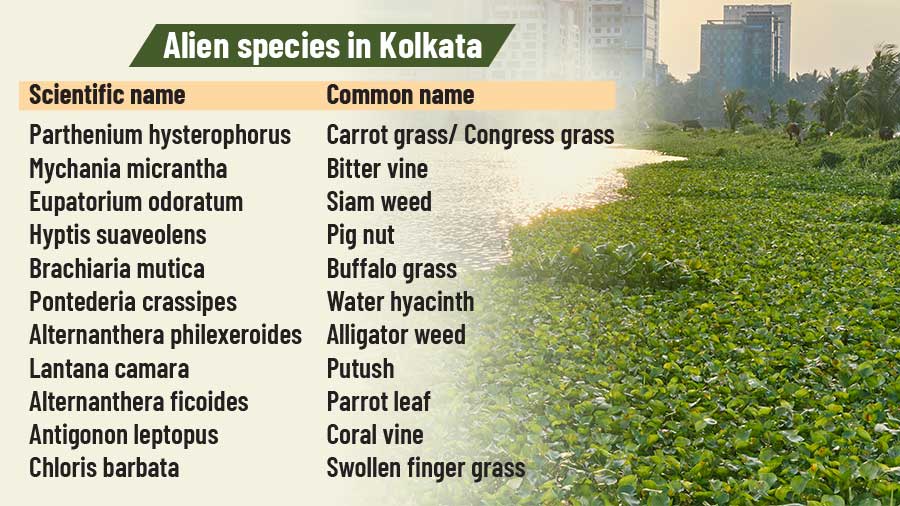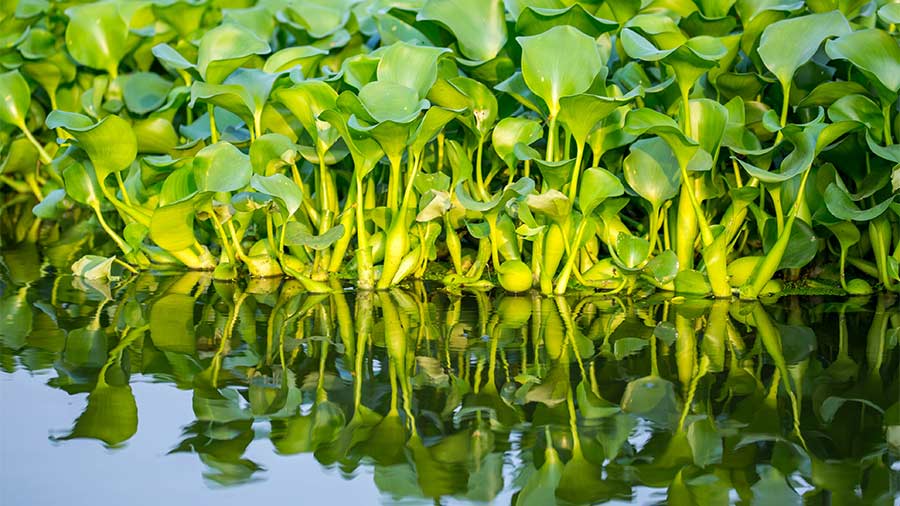The fight with alien species has shifted from reel to reality.
A UN report published in Bonn recently, after being approved by 143 member countries, has pointed out that human-triggered spread of invasive alien species is responsible for global extinction of 60 per cent plants and animals and has become a major threat to nature, economies, food security and human health.
The report prepared by Intergovernmental Platform on Biodiversity and Ecosystem Services (IPBES) points out that India is one of the hotspots for the threat. Experts point out that Indian cities, including Kolkata, are being significantly affected by the phenomenon.
“The severe global threat posed by invasive alien species is underappreciated, underestimated and often unacknowledged,” says the report. In an earlier report in 2019, the IPBES had found that already invasive alien species became one of the five most important direct drivers of biodiversity loss; alongside changes in land- and sea-use, direct exploitation of species, climate change and pollution.
According to the latest report – ‘Invasive Alien Species Assessment Report’ prepared by 86 scientists from 49 countries, a copy of which is with this reporter - “more than 37,000 alien species have been introduced by human activities to regions and biomes around the world (and) more than 3,500 of these are harmful invasive alien species”. The report further says that “200 new alien species (are) recorded every year”.
“Invasive alien species are a major threat to biodiversity and can cause irreversible damage to nature, including local and global species extinctions, and also threaten human wellbeing,” said professor Helen Roy of United Kingdom, a co-chair of the latest report.
The report said that while maximum – 34 per cent – global impacts have been reported from the American continent; Europe and Asia follow closely with 25 to 31 per cent of the impacts.

India, Kolkata affected
A detailed analysis of the report shows that India alone annually loses around 80 to 100 billion US dollars due to impact of harmful invasive alien species, while the global annual loss is 423 billion USD as recorded in 2019; which has “quadrupled every decade since 1970”.
“Islands are most affected with 90 per cent of the extinctions happening in these areas are linked to alien invasive species,” said V.B. Mathur, former chairman of the National Biodiversity Authority, and a key expert associated with the report.
“India is one of the highly affected regions and needs to start a programme soon to combat the problem of alien invasive species,” observed the scientist. “Few years ago, we found that the tiger habitats and hence, tiger numbers, were getting affected in some parts of India as invasive species were destroying the natural grassland,” added Mathur.
H.S. Debnath, the chairman of West Bengal Biodiversity Board, accepts that alien invasive species have become a significant problem in the state, particularly for urban areas like Kolkata.
“Though we are yet to undertake any formal project on the issue but have started to document and assess internally; and found that alien invasive species, especially plants, are becoming a major problem for urban areas like Kolkata which have less ground vegetation naturally and hence, provide scope the alien species to thrive and dominate,” Debnath told The Plurals.
“Water hyacinth, an alien invasive species, has become a major problem in the majority of water bodies in and around Kolkata,” said Mathur.
“There are around 10 such alien species in Kolkata and adjacent areas, which are problematic,” added Debnath, observing that Kolkata Municipal Corporation and other municipalities around should be careful about choice of plants while doing the roadside greenery to avoid the alien invasive species.
